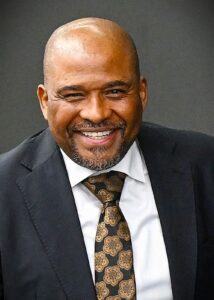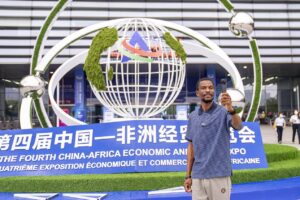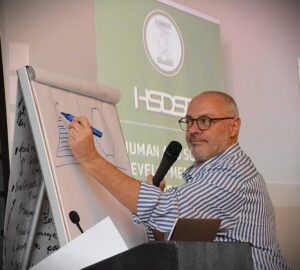The Imaginary Tree that Hides a Forest
Despite being nearly 80 times smaller than the Democratic Republic of the Congo (DRC), Rwanda is often blamed for the instability and poverty that characterize the DRC. Accusers claim that the violent and illegal exploitation of Congolese natural resources is orchestrated by Rwanda and sold on global markets through networks linked to Rwanda.
The dominant narrative in statements from the international media and the Congolese government focuses on the M23 rebel group and its alleged Rwandan support; both are accused of exploiting Congo’s resources and threatening its territorial integrity. This theory overlooks the complex realities on the ground, remains silent on the true beneficiaries of Congolese resources, and ignores the root causes of the war. Closer examination reveals that ethnic cleansing, hate speech, and violent campaigns targeting Congolese Tutsi, and ultimately all Tutsi, are significant drivers of the conflict.
Understanding the complexities of the conflict and generating sustainable solutions requires more than a superficial analysis. Media coverage, scholarly articles, reports from the United Nations and the African Union, ongoing negotiations, agreements, and other diplomatic initiatives must confront the root causes of the conflict, rather than merely addressing its manifestations. Lasting peace can only be achieved through a holistic approach that takes account of the historical, linguistic, socio-political, and economic dimensions to inform effective policies.
The Forest We Refuse to See
Several international mining companies are involved in the trade of Congolese raw materials in Kivu and other provinces. For example, the Canadian company Alphamin Resourcesis active in North Kivu, which is affected by the conflict with M23. In South Kivu, including in the Mwenga area, Chinese companies are carrying out a number of mining activities, both legal and illegal. On 12 February 2025, a BBC investigation reported that, in 2014, the DRC was the world’s largest producer and exporter of diamonds mined by the Minière de Bakwanga and the Sino-Congolese company Sacim. These diamond mines are mainly located in Kasai where there have been no reports of M23 activity. M23 has also never been identified in Katanga where uranium is extracted by multinationals registered in several countries, including the United States, Australia, South Africa, France, Canada, China, India, and the United Kingdom. It is also public knowledge that political leaders in Kinshasa and mining companies employ armed security groups to safeguard their activities in the mines.
The December 2024 EITI-DRC report provides a detailed breakdown of income by sector and by province. It reveals that the mines in North Kivu and South Kivu, regions affected by the conflict, contribute only 1.09% and 0.01% respectively to national revenue; Lualaba and Haut-Katanga provinces account for a whopping 86.24%. This raises questions about Dr. Mukwege’s claims of Rwandan pillaging, especially given Moise Katumbi’s recent claim in “69X Minutes that nearly 99% of Congolese mines are under foreign ownership.
In an article in La Libre Belgique dated April 18, 2025, Hubert Leclercq follows the trail of the income from mines in Katanga, noting that minerals have become a source of financial security for the Tshisekedi family. Various reports, including those from the “Center for Research in Public Finance and Local Development” (CREFDL) and the “Defense of Economic, Social and Cultural Rights in the DRC” (DESC.RDC), confirm that mining does not benefit Congolese citizens. Leclercq writes that the Tshisekedi family owns more than 15 mining sites and quotes a mining specialist based in Greater Katanga: “The Tshisekedis are so confident of their impunity that they barely hide it. They mostly mine these deposits in collaboration with Chinese nationals. A few months ago, some images circulated around the world on social media. They showed a Congolese minister trying to access a site that had been confiscated by a member of the presidential family. The minister was reportedly beaten up. Today, the site is still in the hands of the president’s brother.” A formal complaint has been filed in Brussels accusing the Tshisekedi family of looting mining sites in the Haut-Katanga and Lualaba provinces.
Given the lack of positive benefits for the wider population of the Congo, are the beneficiaries, including the Tshisekedi family and international companies, aware that they are plundering the Congo’s vast resources with no return, on a continental scale? It’s worth noting that the DRC is home to the Inga Dam, which could, with some political will, provide electricity to several African countries. Yet, according to the World Bank (2022), only 21.5% of Congolese people have access to electricity. Similarly, despite having almost inexhaustible water resources, only 35% of the population has access to drinking water.
The Roots of Evil
The war involving M23 is merely a consequence of a deeper crisis. Behind the tumult of propaganda and armed clashes lie complex dynamics that reveal the structural flaws of Congolese society, highlighted the urgency of protecting Tutsi civilians who are being attacked and even killed because of their ethnic identity. A letter signed by over 400 prominent individuals from various backgrounds and continents, addressed to the United Nations Secretary-General, highlighted the urgency of protecting Tutsi civilians who are being attacked and even killed because of their ethnic identity. The letter emphasized the need to identify and address the root causes of violence rather than just treating its symptoms.
On May 22, 2025, Congolese economist Benjamin Babunga Watuna, a specialist in international development with a large social media following, questioned the dominant narrative accusing Rwanda of being behind the Congolese crisis. According to him, the real issues lie in the organization and formalization of the mining sector, as well as in the fight against corruption: “As a native of Kivu, I have never witnessed Rwandan officials, civilians, or even soldiers crossing the border, entering Congolese territory, extracting minerals themselves, and then returning to Rwanda with the spoils. Yet, this is often the kind of simplistic narrative that emerges when we talk about the plundering of Congolese minerals by Rwanda. The real problem is us… Let’s fight corruption and eliminate all forms of influence.”
This warning against overly simplistic narratives is particularly welcome. In a tweet on June 1, 2025, Watuna suggested that this logic of exclusion against fellow citizens is harmful because it fuels wars in the country: “Kulutu (big brother), are you also falling into the trap of ‘true’ and ‘false’ Congolese? And then you’re still surprised that wars never end in this country! Those you persist in calling ‘false Congolese’ will continue to fight until their last breath if necessary. It’s high time we took the path of wisdom before the country is swept away forever by endless confrontations.”
Some of President Tshisekedi’s allies, including Constant Mutamba, former Minister of Justice, Muhindo Nzangi Butondo, Minister of Rural Development, and Justin Bitakwira, former Minister and current Member of Parliament, have been spreading hate speech towards the Tutsi. In a 2023 interview, Bitakwira claimed: “Tutsi are born criminals… When you see a Tutsi, you see a criminal.”
Violence against the Tutsi in the DRC continues, as evidenced by the demolition and burning of over 300 residences in Nturo, in Masisi, in October 2023. Since January 2019, Félix Tshisekedi’s presidency has been marked by an escalation in violence, persecution, and targeted attacks against the Banyamulenge community, a Tutsi ethnic group residing in South Kivu, DRC. This community has experienced heightened vulnerability and insecurity, culminating in the destruction of over 480 villages and the displacement of thousands of individuals.
Systematic persecution has yielded significant human toll, including fatalities among women and children. In December 2024, a coalition of government forces and militias attacked the Banyamulenge, forcing them to abandon their livestock and livelihoods, and leave South Kivu. In reaction to perceived governmental oppression and the inaction of the international community, certain community members have formed an armed group named “Twigwaneho” (translated as “Let us defend ourselves”), emphasizing their feelings of abandonment and the need for self-defense.
The characterization of this violence as “slow genocide” in some reports, along with concerns raised by the United States Holocaust Memorial Museum over the risk of mass atrocities, underscores the gravity of the situation. The current Congo crisis highlights the community’s struggle for fundamental human rights and survival, rather than an attempt to gain control of resources or political power. In both North and South Kivu such hostility is not new. As early as 1991, Congolese Tutsi faced exclusion from the Sovereign National Conference (CNS) on the grounds that they did not meet the criteria to be considered “Zaireans”, a phenomenon that predated the genocide perpetrated against Tutsi in Rwanda by three years.
In a tweet on June 13, Benjamin Babunga Watuna shared a thoughtful reflection on the Congolese crisis, highlighting the importance of acceptance and tolerance: ” I look at my country, and it pains me to see so many of my compatriots consumed by irrational hatred, blinded by a visceral rejection of others, to the point of applauding torture, humiliation, and inhumane treatment inflicted on some of our brothers simply because they are Tutsi. This is not justice, it’s barbarity. This is not resistance, it’s a betrayal of our humanity, and it’s a slippery slope. If tomorrow, it wasn’t the Tutsi, but the Lega who were stigmatized, hated, chased, humiliated… I, who am writing to you here, would be a target. And some of you might applaud this in the name of a false idea of patriotism. No one, I repeat, no one chooses to be born what they are. This country will never heal as long as it continues to designate some of its children as “less Congolese” than others. This country will never hold its head high as long as we don’t understand that harm done to one of us is a threat to us all.”
Regrettably, this situation is the result of an ignorance of history. We must remember that an agreement between Belgium, England, and Germany in 1910, effective from 1916, led to the annexation of several Rwandan provinces to the Congo. Although their territories were henceforth officially classified as Congolese, the indigenous Tutsi and other Banyarwanda have not received full recognition as citizens of the DRC. Instead, they are stigmatized as Rwandans and traitors. Rather than looking for scapegoats, it would be better to consider the history of colonization in its entirety, to measure the spread of genocide ideology against the Congolese Tutsi, and to analyze ineffective governance.
Revisiting the Root Causes and Building on Civic Principles
The Doha Joint Declaration signed on April 23, 2025, by representatives of the DRC and the Alliance Fleuve Congo/M23 marked a promising step towards lasting peace. This was followed by the June 18, 2025, declaration on peace talks between the DRC and Rwanda, facilitated by the United States, ratified by the June 27, 2025, Peace Agreement signed in Washington DC. Both countries have agreed to adhere to nine key provisions, including: (i) Territorial integrity and prohibition of hostilities; (ii) Disengagement, disarmament, and integration of non-state-armed groups; (iii) Joint security coordination mechanism; (iv) Refugees, internally displaced persons, and humanitarian considerations, (v), MONUSCO and other multilateral support; (vi) Regional economic integration framework.
The implementation of this agreement is essential and requires support, as every path toward peace helps save lives. But it is also crucial to analyze the underlying causes of the crisis. What chance do we have of securing the future if we fail to address the fundamental issues? Two days following the Washington Peace agreement, the Congolese army commenced aerial bombardments of Banyamulenge villages. Nairobi, the African Union, Doha, and Washington must formulate a strategy that incorporates a cohesive social plan for the Congo, specifically addressing the persecution and marginalization of Congolese Tutsi and other minority groups. Neglecting this aspect will jeopardize the establishment of peace which, if built on fragile foundations, will likely result in instability and will be short-lived. Facilitators must also take into account Rwanda’s security concerns if they are to promote sustainable peace.
Peace is a process that requires deep societal commitment, which is inseparable from development. The fight for peace is therefore the noblest fight of all, as it seeks to create a world where differences are recognized and respected, and conflicts are resolved through reason and dialogue. Unfortunately, in the Great Lakes region, hate speech is spreading, and Congolese political authorities are exacerbating tensions by sometimes bringing in foreign forces and even mercenaries against their own citizens. The murder of a Congolese Tutsi often sparks reactions of joy from the crowd, as politicians intentionally blur the line between patriotism and ethnic hatred. This dangerous dynamic recalls Albert Camus’ reaction two days after the Hiroshima bombing. His editorial in the August 8, 1945, issue of Combat takes a contrary view to his colleagues who hail the use of the atomic bomb against Japan. The future author of The Plague holds governments accountable: “In the face of terrifying prospects for humanity, it’s even clearer to us that peace is the only fight worth fighting. It’s no longer a prayer, but an order that must rise up from the people to their governments, the order to make a definitive choice between hell and reason.” His words remain relevant today, both in the Great Lakes region and in other conflict zones around the world.
The Pathways to Peace
Among the solutions we proposed in our aforementioned letter are:
- Disarming the FDLR and combating its genocidal ideology to address Rwanda’s security concerns.
- Reaffirming the inviolability of borders in eastern DRC and the security of Congolese Rwandophones, as well as the exercise of their citizen rights as interdependent and inseparable.
- Promoting a Congolese nationality that emphasizes the legal and political bond between an individual and the state, rather than their sociological belonging to a specific tribe or ethnicity.
- Combating corruption and promoting transparent management of Congolese resources for the benefit of the whole population.
In the face of atrocities that defy reason, writers, artists, and intellectuals have a quasi-moral obligation to act as beacons of reason, exposing the forces in the shadows that seek to destroy human societies. By harnessing the power of knowledge, they can counter the chaos that fuels hatred and violence. To assume this responsibility, they must rely on fact-checking rigor, in-depth historical knowledge, meticulous field investigations, and impeccable journalistic ethics.
More from Africa News 24
DR Congo crisis: EAC-SADC ministers agree to pursue political, military tracks
A significant and worrying fact highlighted by the crisis in the Great Lakes region is the inability of African researchers to break free from the absurd categorization of the Banyarwanda population as “Bantus” or “Nilotics” inherited from the “colonial library.” By doing so, they continue to exacerbate conflicts after failing to prevent atrocities. To understand the roots of hatred towards Congolese Tutsi and the genocide against Rwandan Tutsi, and promote peaceful coexistence in the region, we need to develop a new theoretical framework that considers the complexity of conflicts and deconstructs the underlying logics of exclusion.
Rwanda, Burundi, and the Democratic Republic of Congo, along with the entire African continent, should create institutions that offer an alternative to exclusionary discourse and violence. Imagining institutions that promote intercultural and cross-border dialogue, based on research in humanities and social sciences, will create a positive legacy for future generations. Peace is a worthy and heroic struggle that is possible and changes the world. It promotes the dignity of nations, transforms people’s lives, and makes them supportive of others. This project is not a utopia but a prerequisite for the advent of a more just and happier world based on a culture of openness, intellectual freedom, and research. The pursuit of peace urges us to explore and discover the shared hopes and intertwined destinies of coexistence.
We urge regional leaders to prioritize human solidarity and support humanities and social sciences that promote critical thinking, identify the roots of conflicts, inform policy decisions, and create links between communities. This will allow these disciplines to play an essential role in the emergence of the Global Citizen, who will not be constrained by ethnic particularism. The concept of the “citizen” arises from a heterogeneous space and continues to evolve within a broader horizon. In Africa, the interconnectedness of human beings, ancestors, the divine, and the cosmos suggests that “citizens of the world” can only realize their full potential within an ecology of human existence.
Prof. Jean-Pierre Karegeye, Director, Interdisciplinary Genocide Studies Center, Boston, USA. Books include Religion in War and Peace in Africa (Routledge, 2020).
Prof. Vincent Duclert, Historian and Researcher at CESPRA, EHESS, CNRS. Prof. Duclert led a commission on French archives related to the Tutsi genocide. Publications include La France face au génocide des Tutsi. Le grand scandale de la Ve République (Tallandier, 2024)
Boubacar Boris Diop, Writer, author of Murambi. The Book of Bones, 2022 Neustadt International Prize for Literature laureate.
Prof. Nicki Hitchcott, Professor of French and African Studies, University of St Andrews, Scotland. Books include Rwanda Genocide Stories (Liverpool University Press, 2015).












